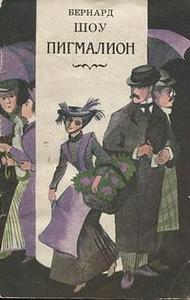You need to sign in or sign up before continuing.
Take a photo of a barcode or cover
funny
hopeful
lighthearted
fast-paced
Plot or Character Driven:
Plot
Strong character development:
Yes
Loveable characters:
Yes
Diverse cast of characters:
No
Flaws of characters a main focus:
No
informative
lighthearted
fast-paced
Plot or Character Driven:
Character
Strong character development:
Yes
Loveable characters:
No
Diverse cast of characters:
No
Flaws of characters a main focus:
Yes
fast-paced
Generous 2.5 because while I appreciate the feminism displayed in this book and think it was impressive that he held such ground-breaking ideas back then, I also think it's stupid that we're lauding someone for having a (very flawed but also) basic understanding of women's rights.
Of course women don't like to be mastered and beaten, and if we're impressed that someone said that before it was a no-brainer, then I think we should also be pointing out how shockingly low the bar is for an old book to get praise for the good stuff instead of critique for the bad stuff. If the groundbreaking idea presented in the book is that women should have autonomy over their lives, then we should comment on how backwards the world used to be instead of finding it so impressive that someone would have such a basic idea of human rights (as impressive as that may be in its own right, since he probably wasn't surrounded by similar-minded people).
It's interesting that so many people look over the flaws in the book (many still-sexist ideas, and if I'm remembering correctly there were also some racist sentiments) in order to highlight the things that are commonplace today - there are so many books that not only do it better but also don't have any sexism, and personally I wish I'd spent my time reading those instead. This book just wasn't worth it for me.
I may come back and really dive deeply into the good and the bad of this book, but that entails rereading it and I'm not sure I'm interested in doing that, as I didn't find it engaging and I'm not big on plays. Interesting read, and definitely got me thinking, so I'll give it credit for that!
Of course women don't like to be mastered and beaten, and if we're impressed that someone said that before it was a no-brainer, then I think we should also be pointing out how shockingly low the bar is for an old book to get praise for the good stuff instead of critique for the bad stuff. If the groundbreaking idea presented in the book is that women should have autonomy over their lives, then we should comment on how backwards the world used to be instead of finding it so impressive that someone would have such a basic idea of human rights (as impressive as that may be in its own right, since he probably wasn't surrounded by similar-minded people).
It's interesting that so many people look over the flaws in the book (many still-sexist ideas, and if I'm remembering correctly there were also some racist sentiments) in order to highlight the things that are commonplace today - there are so many books that not only do it better but also don't have any sexism, and personally I wish I'd spent my time reading those instead. This book just wasn't worth it for me.
I may come back and really dive deeply into the good and the bad of this book, but that entails rereading it and I'm not sure I'm interested in doing that, as I didn't find it engaging and I'm not big on plays. Interesting read, and definitely got me thinking, so I'll give it credit for that!
This is one of those plays that you have to read as well as watch. It's a classic because at the heart of it is the understanding of human nature. Shaw calls it didactic fiction but apart from his thoughts in the sequel, the play doesn't feel overbearing with morality (except for Mr. Doolittle's speeches, where he does occasionally come off as a political mouthpiece but even this has its place in the plot with what happens to him). Shaw's characters feel modern too - it could be set in today's time with only slight modifications for the circumstances. The character's relationships, their personalities, the entire plot of taking a common girl and turning her refined - you could see it in an edgy Netflix young adult movie which isn't meant as an insult, just shows you how well it holds up.
A charming, gorgeous little play that says exactly what it needs to say and (almost) nothing else. As this is the first Shaw play I've read, I wasn't sure to expect, but what I found was entirely accessible to modern readers. What Pygmalion does well is dialogue: practically every line is witty and adds to the plot. I also enjoyed the ambiguous ending (skip Shaw's totally unnecessary and condescending epilogue, appended after the fact, wherein he totally delineates the post-play lives of the characters). The play itself, sans-epilogue, is masterfully subtle; Shaw prefers not to show us the main action in the play but instead give us the before-and-afters of scenes. We don't see Eliza learning her vowels, for example, which makes the transformation all the more interesting. The one irritation in the play is the character of Eliza's father, who could be cut completely with virtually no alteration to the story and who has far too many lines, which only serve to complicate the otherwise simple plot. But otherwise--a witty, effective, and very fun play that accomplishes entirely what it sets out to do.
I kind of expected more of the lessons... also happy ending, but i guess?
funny
lighthearted
reflective
fast-paced
Plot or Character Driven:
Plot
Strong character development:
Complicated
Loveable characters:
Complicated
Diverse cast of characters:
No
Flaws of characters a main focus:
Yes




